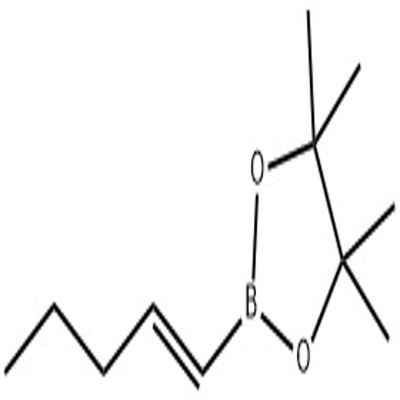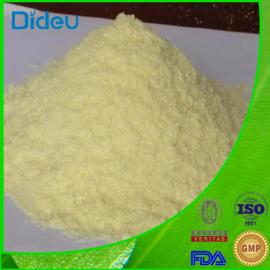-
Categories
-
Pharmaceutical Intermediates
-
Active Pharmaceutical Ingredients
-
Food Additives
- Industrial Coatings
- Agrochemicals
- Dyes and Pigments
- Surfactant
- Flavors and Fragrances
- Chemical Reagents
- Catalyst and Auxiliary
- Natural Products
- Inorganic Chemistry
-
Organic Chemistry
-
Biochemical Engineering
- Analytical Chemistry
- Cosmetic Ingredient
-
Pharmaceutical Intermediates
Promotion
ECHEMI Mall
Wholesale
Weekly Price
Exhibition
News
-
Trade Service
In the United States, about 7% of adults are diagnosed with severe hypercholesterolemia, defined as untreated low-density lipoprotein (LDL) cholesterol levels greater than or equal to 190 mg /dl.
statistics, 1 in 313 people suffer from familial hypercholesterolemia, which is more common in patients with early cardiovascular disease, 1 in 15 people.
Although treatments with the largest dose of statins, such as izetimi bee and a pre-protein-converting enzyme PCSK9 inhibitor, are still difficult to achieve in some patients with hemassive familial hypercholesterolemia.
addition, although LDL blood harvesting can further reduce LDL cholesterol levels, the use of this invasive method is limited by many conditions, which can cause greater inconvenience to patients.
this, a multi-center, double-blind, placebo-controlled Phase II clinical study was conducted at the Icahn School of Medicine at Mount Sinai in New York to assess the safety and effectiveness of evinacumab, an all-human monoclonal antibody.
findings were published November 15 in the New England Journal of Medicine and as "the latest science" at the American Heart Association Scientific Conference 2020.
DOI:10.1056/NEJMoa2031049 The study recruited 272 patients and randomly divided them into the following groups: under-skin injection evinacumab:4 50 mg, once a week (40 people); 300 mg, once a week (43 people); 300 mg, 2 times a week (39 people); placebo (41 people).
intravenous evinacumab: 15 mg per kg, 1 time per 4 weeks (39 persons);
In the 16th week, the difference between the baseline LDL cholesterol levels between the 300 mg per week, 300 mg per week, and the 300 mg subsulation injection evinacumab group and the placebo group was -56.0, -52.9 and -38.5 percentage points(all groupS Ps were less than 0.001).
difference between the 15 mg per kilogram and 5 mg intravenous evinacumab and placebo groups was -50.5 percentage points (P .lt;0.001) and -24.2 percentage points, respectively.
week 16, the calculated least-two-by-two average change in LDL cholesterol levels relative to the baseline was between 3% and 16% of the occurrence of serious adverse events during treatment.
Most patients have good tolerance to evinacumab, one patient who received an epithetic injection had difficulty breathing, and the other had mild allergic reactions, both of which stopped medication and improved symptoms with other treatments.
two deaths were reported in the trial, but were related to underlying health conditions.
of changes in LDL cholesterol levels compared to baselines calculated at week 16 in patients with resophedic hypercholesterolemia showed that evinacumab reduced LDL cholesterol by 50 percent in patients with resophedic hypercholesterolemia.
Robert Rosenson, M.D., explains: "Evinacumab is a complete human monoclonal antibody that inhibits angiogen-like protein 3 (ANGPLT3) and lowers LDL cholesterol by not relying on LDL subjects.
genetic studies have shown that people who are known to lack ANNGPTL3 or have low levels have low levels of LDL cholesterol for life and rarely suffer from atherosclerotic cardiovascular disease.
" Drugs that treat refractic hypercholesterolemia through an independent LDL-like pathway currently do not meet clinical needs, and if approved by the FDA, evinacumab may fill the clinical void in patients by lowering severely elevated LDL cholesterol.
" is understood to be under regulatory review in the United States and the European Union as an adal way to apply to patients with pure family hypercholesterolemia (another form of familial hypercholesterolemia) as an aid to other fat-lowering treatments.
resources: s1. Evinacumab in Patients with Refractory Hyperstryemia







